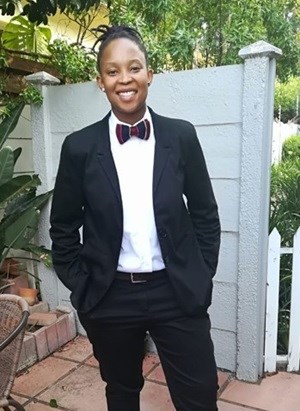
This peaked my curiosity. Surely, if we as businesses and marketers represent a rainbow nation, this should be the very least that we as Africans should know about each other’s cultures?
Let’s be honest, South Africa is complex culturally, linguistically and historically, but in the attempt to better serve our nation, our people, our customers and putting humans first, should we not have more curiosity to understand each other’s cultures, traditions, backgrounds? Honour their existence and “give every human being every right that we claim for ourselves” – Robert Ingersoll.
There has been a tremendous focus for businesses to evolve and drive human first strategies? Surely in order to do that we should focus on culture appreciation, by experiencing and learning about the different cultures, traditions, beliefs and customs.
To give by not taking away from the culture. By not understanding and respecting each other’s cultures, one becomes guilty of cultural appropriation by reducing cultures and its people to a stereotype and gaining some benefit from the use of the cultural component which harms the culture’s autonomy, image and attempts at self-representation.
I approached my friend Mo Malele, a poet, content producer, entrepreneur and strategy consultant who recently performed at the #FutureFit networking events “My Country Needs Me” and addressed all of the democratic values of human dignity, equality, equity, culture and freedom.
As Human Rights Day is upon us, I feel the need to revisit the lessons that can be learnt from that era that speak to the cultural turning point we find ourselves in today.
Human Rights Day is in remembrance of the many lives that were lost on 21 March 1960 in an anti-Apartheid protest now known as the Sharpeville Massacre.
A pro-liberation, pro-democracy protest turned violent as apartheid regime police opened fire on protesters, killing dozens and in my opinion demonstrating the dire consequences of creating an environment that doesn’t accept and celebrate cultural diversity, but rather seeks to vilify it.
Decades later the lessons from then are relevant more now than ever before because globalisation has ushered in a new era, one we were never ready for or expected to be this demanding.
Globalisation has changed the game of cultural diversity because we have entered an era where celebrating cultural diversity is no longer optional but necessary, as people are moving around the world like they have never before and they are bringing their cultures, languages, traditions and foods with them, and so they should.
We can learn a lot from the Human Rights Day narrative – particularly that diversity should not be tolerated or simply managed, but rather accepted and celebrated on a grand scale.
When it is not it creates a pressure cooker environment where people are unable to authentically express themselves and eventually matters reach a tipping point where the pressure cookers bursts, bullets fly, people die and lives are irreparably ruined – when this happens nobody wins, everybody loses.
At the base of it all is our inability to accept and celebrate our cultural diversity for the gem it truly is. The sharing of different ideas and varying perspectives is largely responsible for most of the progress in the world – everything from the appetising food menu that incorporates dishes from around the globe to the internet of things.
The fact that a young adult who grew up speaking Sesotho as their home language but went to English speaking schools is now teaching English to Vietnamese children is a story of how cultural diversity multiplies progress for all, regardless of their background.
As we celebrate Human Rights Day, we must remember what it truly means and that the message from decades ago is still relevant and true today. Simply put, the price to be paid for not celebrating cultural diversity is way too high and that as a society trying to build a nation, we must create spaces and places where we celebrate cultural diversity by allowing people to authentically express themselves.
In closing,
A culture is not an abstract thing. It is a living, evolving process. The aim is to push beyond standard-setting and asserting human rights to make those standards a living reality for people everywhere. – Mary Robinson, former UN Commissioner for Human RightsTo learn more about the conversations to become more #CultureFit, listen further to the episode with Mo Malele, Gavin Moffit, Ingrid Lotze as they unpack Diversity Inclusion. You can listen here: CastBox, Google Podcast and iTunes. For other channels click here.
